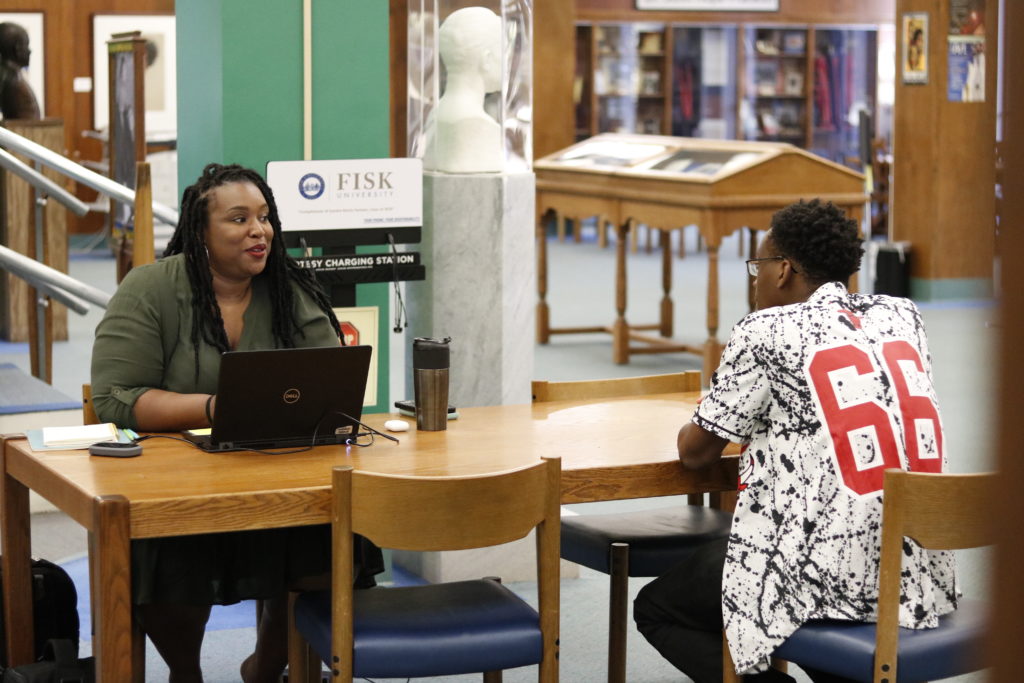Nashville High School Doing More Than Ever To Help Students Enter College, Despite Coronavirus Barriers
ByDamon Mitchell
Holly Fakunle, a KIPP Nashville college persistence counselor, holds a check-in with Nicholas Ulumenfo, a student at Fisk University. (Fall 2019)
It’s tough helping students enroll in college and getting them to stay there — even under normal circumstances. Add a pandemic to the mix on top of decades of education inequality, and expanding higher education access has become that much harder for student advocates.
So at KIPP Nashville, a Metro public schools charter network, the staff has had to get creative in the ways they help kids start college.
Lauren Denton, a persistence counselor on the KIPP Through College team, knows how important it is to keep students engaged after high school graduation. She’s been a student advocate since her advising days in Arkansas and has been at KIPP Nashville since 2018.
But even a pro like Denton has had to make tough adjustments to operate during the pandemic, especially since the KIPP college matriculation process is an intimate one.
Normally, it’s filled with face-to-face meetings, which helps builds trust, while also allowing for a smoother transition process. It’s something that starts in high school, when advisors help match students with colleges. Then they prepare students for their first day of classes — and the support continues for years after as they work to earn their degrees.
“Once they graduate from high school, we just don’t drop the ball with them,” says Denton.
The six-person KIPP Through College program serves more than 240 students and alumni at 40 different colleges and universities across the country. For this latest school year, they helped KIPP seniors secure more than $3.5 million in college scholarships.
But the summer after graduation is especially an important time for disinvested youth, Denton says.
Nearly 80% of KIPP high school students are underserved or economically disadvantage. Historically, these students are left behind in the enrollment process.
“Once they’ve made the decision to go to school. They think: ‘Oh, I’m just going to show up on day one,’ ” says Denton. “No. You have to make enrollment, [pay] fees or tell the school that you’re going to enroll. Then you have to register for orientation so that you have classes.”
Many high schools help students fill out financial aid forms, but at KIPP, that’s only a small part of the matriculation process.
“Are you going to live on campus or off campus? Do you have to let the school know if you’re going to live off campus? Have you made your first payment if you’re on a payment plan?,” says Denton.
But the coronavirus has made the intimate advising process nearly impossible.
What’s at stake?
With the past few months of remote learning, advisors now have to make the process virtual — matching students with colleges, getting them enrolled.
Read the full article here
